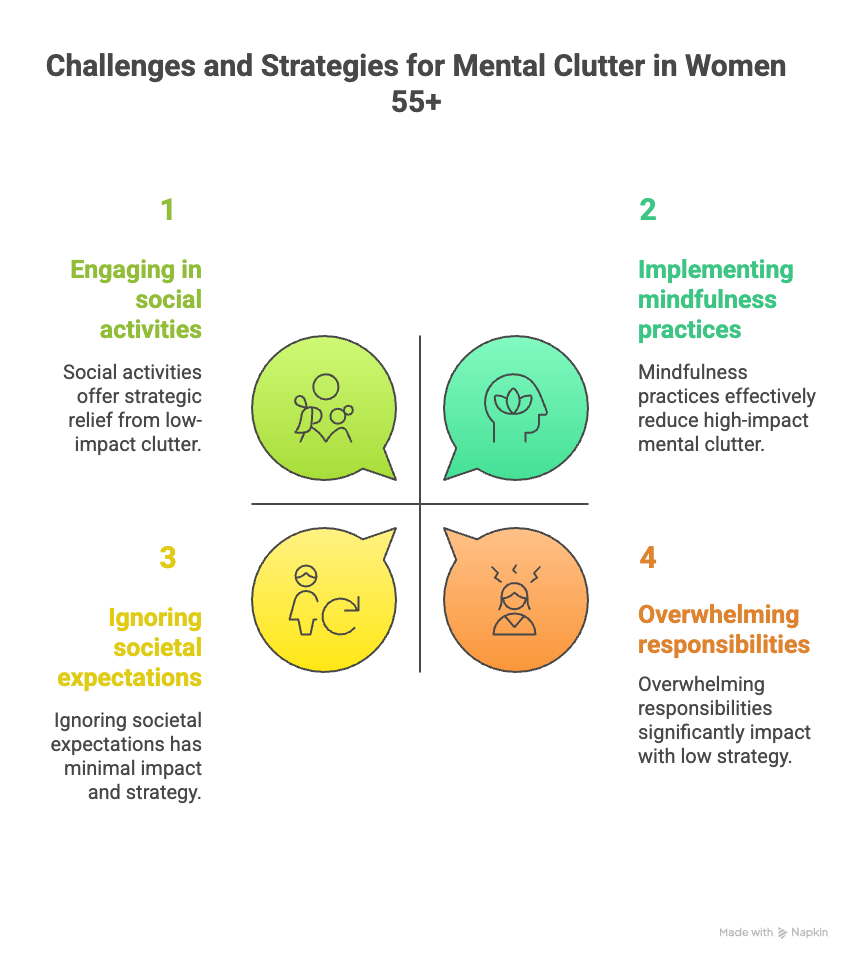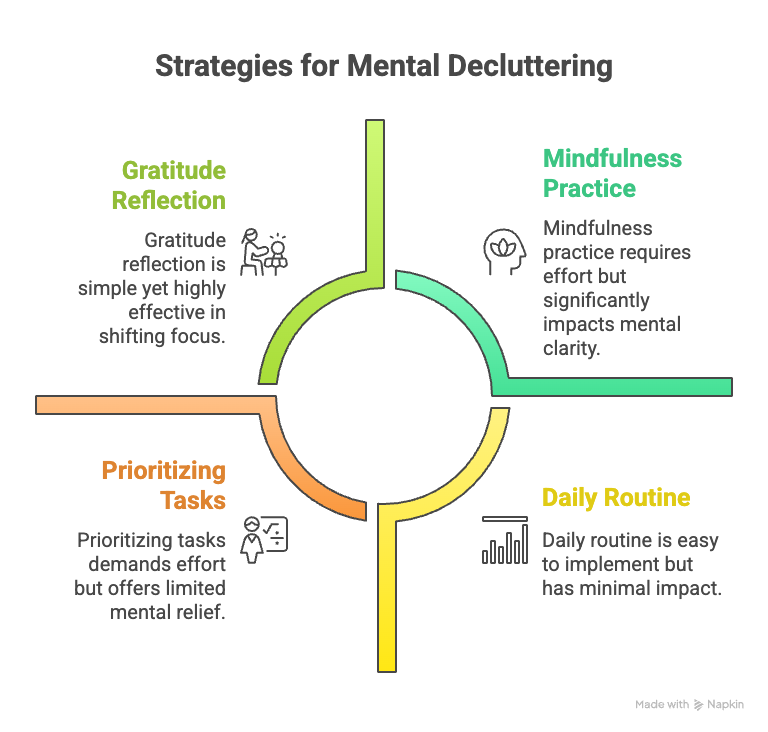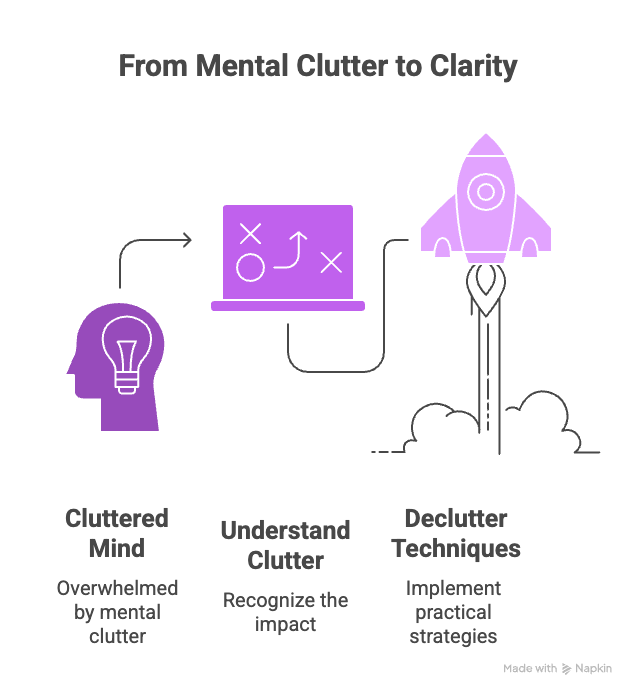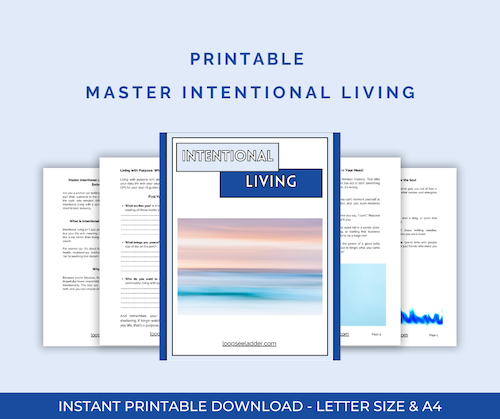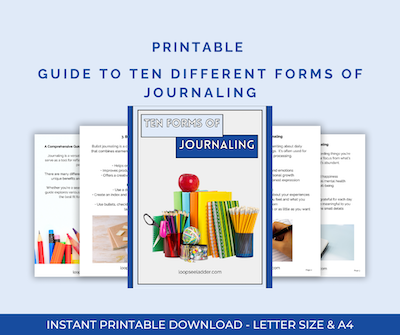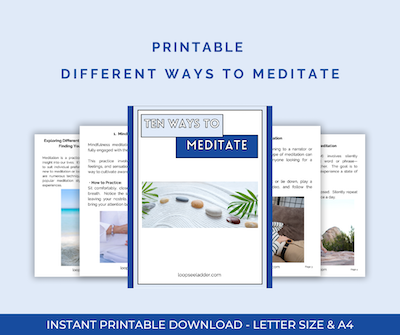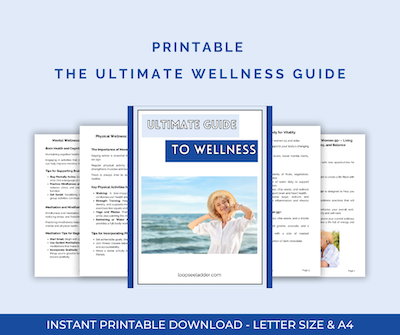Decluttering Your Mind for Clarity for Women Over 55
Are you ready to banish mental clutter and embrace newfound clarity like never before? Decluttering your mind is the first step to a simpler life.
Women 55+ are doing that to live their best lives with intention, purpose, passion and joy.
Summary: This article invites women aged 55+ to clear mental clutter as well as physical clutter. It explores how old beliefs, recurring negative thoughts, overwhelming to-do lists and overcommitments can cloud your mind, drain your energy and slow your next chapter. The post offers practical ways to declutter your mind: identifying the mental “stuff” that no longer serves you, setting boundaries around your attention and commitments, establishing simple routines (like brain dumps or mindful pauses), and creating mental space for joy, clarity and purpose. The message: A quieter mind supports a more straightforward path forward.
A Preamble
Are you ready to banish mental clutter and embrace a newfound clarity like never before?
It's time to take charge of your mental well-being and discover actionable solutions to the unique challenges women over 55 face. Clearing your mind is a necessary process that leads to a simpler, more organized life.
In this empowering article, we will delve into the world of mental clutter and offer practical strategies for regaining a sense of calm and clarity in your life.
From understanding the impact of mental clutter to boosting focus and enhancing mental clarity, we will guide you towards embracing a life filled with peace and clarity.
So, let's dive in and learn how to reclaim your mental well-being and experience a life of newfound clarity and peace.
Understanding the Mental Clutter is the First Step to Decluttering Your Mind
Understanding its impact on the lives of women over 55 is essential to banish mental clutter and truly embrace clarity.
Mental clutter can manifest in various forms, such as overwhelming thoughts, persistent worry, or a general sense of mental disorganization.
This mental fog can cloud our ability to think clearly and make decisions confidently, ultimately hindering our overall sense of well-being.
One key challenge for women 55+ is accumulating life experiences and responsibilities that can lead to mental clutter. Over the years, we often take on various roles and responsibilities, including career demands, family obligations, and personal goals. While admirable, juggling these multiple hats can lead to mental overload and hinder our ability to focus and find clarity.
Additionally, societal expectations and stereotypes can further contribute to mental clutter for women 55+. These expectations may include the pressure to continue fulfilling caregiver roles or feeling undervalued or invisible in our later years. Such external pressures can add to our mental clutter, making it difficult to prioritize our needs and find the clarity we deserve.
The impact of mental clutter can extend beyond our mental well-being. It can affect our physical health by causing stress, anxiety, and even insomnia. Furthermore, mental clutter can hinder our growth and prevent us from pursuing new passions or embracing opportunities that could bring us joy and fulfillment.
Acknowledging the existence of mental clutter is the first step towards reclaiming our mental well-being and experiencing a life of newfound clarity and peace. By recognizing the various forms mental clutter can take and understanding its contributing factors, we are better equipped to take proactive steps and implement strategies to help us declutter our minds and regain focus.
Understanding its impact on the lives of women over 55 is essential to truly banish mental clutter and embrace clarity.
Acknowledging the existence of mental clutter is the first step towards reclaiming our mental well-being and experiencing a life of newfound clarity and peace.
The Impact of Mental Clutter on Women 55+
Mental clutter can significantly impact women aged 55 and above, accumulating over time and intensifying with age.
For many older women, this stage of life presents unique challenges, including retirement, empty nests, health concerns, and the loss of loved ones. These transitional periods can lead to uncertainty, self-doubt, and an overwhelming sense of upheaval.
Additionally, societal expectations, gender roles, and the pressure to conform to societal norms can further contribute to mental clutter among women 55+. Women are often expected to juggle multiple roles and responsibilities, including those of caregivers, homemakers, professionals, and community leaders. These expectations can create a constant mental load, leaving little space for self-reflection, personal growth, and the establishment of one's own identity.
The impact of mental clutter on women aged 55 and above can manifest in various ways. It may lead to increased anxiety, difficulty making decisions, a lack of focus or concentration, and a general feeling of being mentally overwhelmed. These challenges can interfere with daily life, making it harder to navigate relationships, pursue new endeavours, and thoroughly enjoy this phase.
However, it's crucial to recognize that mental clutter is not an inherent and unchangeable aspect of aging. By understanding the unique challenges women over 55 face and implementing strategies to declutter the mind, it's possible to regain clarity, purpose, and fulfillment.
Mental clutter can significantly impact women aged 55 and above, accumulating over time and intensifying with age.
By understanding the unique challenges women 55+ face and implementing strategies to declutter the mind, it is possible to regain clarity, purpose, and fulfillment.
Decluttering Your Mind: Practical Strategies
One effective strategy for decluttering your mind is to practice mindfulness. Mindfulness involves being fully present in the moment and observing your thoughts without judgment. By becoming aware of the ideas and distractions that clutter your mind, you can learn to let them go and focus on what truly matters. This practice can help you cultivate a sense of calm and clarity, enabling you to navigate mental clutter more easily.
Another practical strategy is to prioritize and organize your thoughts. Start by identifying the most important tasks or goals you want to focus on. Write them down and break them into smaller, manageable steps. This helps you declutter your mind by providing a clear roadmap and offering a sense of accomplishment as you check off each task.
Creating a daily routine can also be incredibly helpful in decluttering your mind. Structure your day by setting aside specific times for activities such as exercise, relaxation, and pursuing your passions. A routine reduces decision fatigue, freeing mental space for more important thoughts. This way, you can direct your energy towards what truly matters and let go of unnecessary mental clutter.
Additionally, practicing gratitude can be a powerful tool in decluttering your mind. Take a few moments each day to reflect on what you are grateful for. This simple practice helps shift your focus from what may be causing mental clutter to the positive aspects of your life. It allows you to appreciate the present moment and cultivate a more positive mindset, freeing your mind from unnecessary worry and stress.
By incorporating these practical strategies into your life, you can declutter your mind and create a space for clarity and focus. With a clear mind, you will be better equipped to allow for even greater empowerment and fulfillment in this stage of life.
By incorporating these practical strategies into your life, you can declutter your mind and create a space for clarity and focus. With a clear mind, you will be better equipped to allow for even greater empowerment and fulfillment in this stage of life.
Boosting Focus and Enhancing Mental Clarity
Another critical element in banishing mental clutter and embracing clarity is boosting focus and enhancing mental clarity.
In today's fast-paced world, our minds are constantly bombarded with distractions and demands, making it challenging to stay focused and maintain a clear mental state.
However, incorporating a few simple practices into your daily routine can sharpen your focus and cultivate mental clarity.
One effective strategy is to incorporate mindfulness techniques into your daily life. Mindfulness involves paying attention to the present moment without judgment, allowing you to engage fully with your thoughts and experiences. Mindfulness can sharpen your focus, improve concentration, and reduce mental clutter. This can be as simple as taking a few minutes each day to sit in a quiet place, close your eyes, and focus on your breath. By focusing your attention on your breath, you create a mental anchor that helps bring you back to the present moment when your mind starts wandering.
In addition to mindfulness, another way to boost focus and enhance mental clarity is through regular physical exercise. Exercise has been shown to have numerous cognitive benefits, including improved focus and mental clarity. When you engage in physical activity, your brain releases endorphins, neurotransmitters that help improve mood and boost cognitive function. Whether you're going for a walk, practicing yoga, or participating in a sport, finding an exercise routine you enjoy can significantly improve your mental clarity and overall well-being.
Furthermore, practicing gratitude can be a powerful tool in decluttering your mind. Take a few moments each day to reflect on what you are grateful for. This simple practice helps shift your focus from what may be causing mental clutter to the positive aspects of your life. It allows you to appreciate the present moment and cultivate a more positive mindset, freeing your mind from unnecessary worry and stress.
By incorporating these practical strategies into your life, you can declutter your mind and create a space for clarity and focus.
Another critical element in banishing mental clutter and embracing clarity is boosting focus and enhancing mental clarity.
By incorporating these practical strategies into your life, you can declutter your mind and create a space for clarity and focus.
Embracing a Life of Peace and Clarity
In addition to decluttering your mind, embracing a life of peace and clarity involves adopting mindful practices that promote calm and serenity.
One such practice is meditation. Taking time each day to sit in stillness and focus on your breath can help quiet the noise in your mind and bring a sense of tranquillity. Just a few minutes of meditation can significantly improve your mental well-being, allowing you to approach life with renewed clarity and purpose.
Another way to embrace a life of peace and clarity is by simplifying your environment. Clutter not only affects our physical space but also adds mental chaos. By decluttering your living and working areas, you create a sense of order and organization that translates to your mind. Removing unnecessary items and organizing your space can free up mental energy, creating a more peaceful atmosphere that enables you to think more clearly and make better decisions.
Moreover, nurturing healthy relationships is vital for embracing a life of peace and clarity. Surrounding yourself with supportive, positive individuals can have a profound impact on your mental well-being. Engage in meaningful conversations, seek out like-minded individuals who share your values and goals, and let go of toxic relationships that drain your energy. You create a space where peace and clarity can flourish by surrounding yourself with genuine connections and nurturing those bonds.
Additionally, it's crucial to establish boundaries in your life. Say no to commitments or obligations that do not align with your priorities or values. Taking on too much can overload your mind, leaving you feeling overwhelmed and unfocused. By setting boundaries, you create space for what truly matters to you and can direct your energy toward activities that bring you joy and fulfillment.
Finally, prioritizing self-care is essential for maintaining a clear and peaceful mind. Engage in activities that bring you joy and recharge your spirit. Whether you engage in hobbies, practice self-reflection, or pursue personal growth, investing time in yourself allows you to cultivate inner peace and clarity. Remember that self-care is not selfish; it is essential to your mental well-being.
By incorporating these practical strategies into your life, you can declutter your mind and create a space for clarity and focus.
Conclusion
This empowering journey to banish mental clutter and embrace clarity for women 55+ has illuminated their unique challenges and provided actionable strategies for reclaiming a sense of calm.
By understanding the nature of mental clutter, recognizing its impact, and implementing practical decluttering techniques, you can embark on a path toward newfound clarity and peace.
Take action today and reclaim your mental well-being.
Oliver Wendell Holmes Jr. once said, "A mind stretched by a new experience can never return to its old dimensions."
Embrace the journey and unlock the limitless potential of a clutter-free mind.
From Nourish and Nettle: The Psychology Of Decluttering: Getting Past Mental Roadblocks
From Living in the Margins: How to Clear Mental Clutter
This empowering journey to banish mental clutter and embrace clarity for women 55+ has illuminated their unique challenges and provided actionable strategies for reclaiming a sense of calm.
Embrace the journey and unlock the limitless potential of a clutter-free mind.
A Challenge For You:
Choose one of the techniques mentioned in this blog to enhance mental clarity.
Make a plan to include that practice in your daily life.
Carry out your plan.
Celebrate your victories.
You are amazing!
FAQ
Q: Who is this article for?
A: Women aged 55+ who are busy, feel mentally overloaded, stuck in old thought patterns or ready to simplify and refresh how they think, feel and act.
Q: What does “decluttering your mind” mean here?
A: It means reducing the mental burden of too many thoughts, obligations, self-criticism and outdated beliefs so you can think, feel and act with more clarity and freedom.
Q: What practical suggestions does the article include?
A: Suggestions include:
A “brain dump” habit: write down all your thoughts, worries or tasks to release them from your mind.
Setting limits on commitments or screen/time-use that drain mental energy.
Checking your inner narrative: noticing recurring negative thoughts and gently replacing them with more supportive ones.
Starting small: a few minutes of silence, a mindful snack, or an intentional pause each day to reset and quiet the mind.
Q: Do I need to become a meditation expert or restructure my whole life to benefit?
A: No. The article emphasizes manageable, gentle shifts rather than a dramatic overhaul. It’s about creating space, not striving for perfection.
Q: How will this benefit me now?
A: You’ll likely experience less mental noise, fewer intrusive “what ifs” or “should-haves,” more sense of present-moment calm, clearer decisions and a more substantial alignment with your priorities and next chapter.
Q: Is this a substitute for professional psychological or medical support?
A: No. These are mindset and lifestyle tools tailored for women 55+. If your mental load is heavy, you’re experiencing persistent anxiety, depression or cognitive concerns, professional help should be part of your plan.
👉 I thoughtfully use AI tools to polish my writing, but every story comes from my lived experience.



